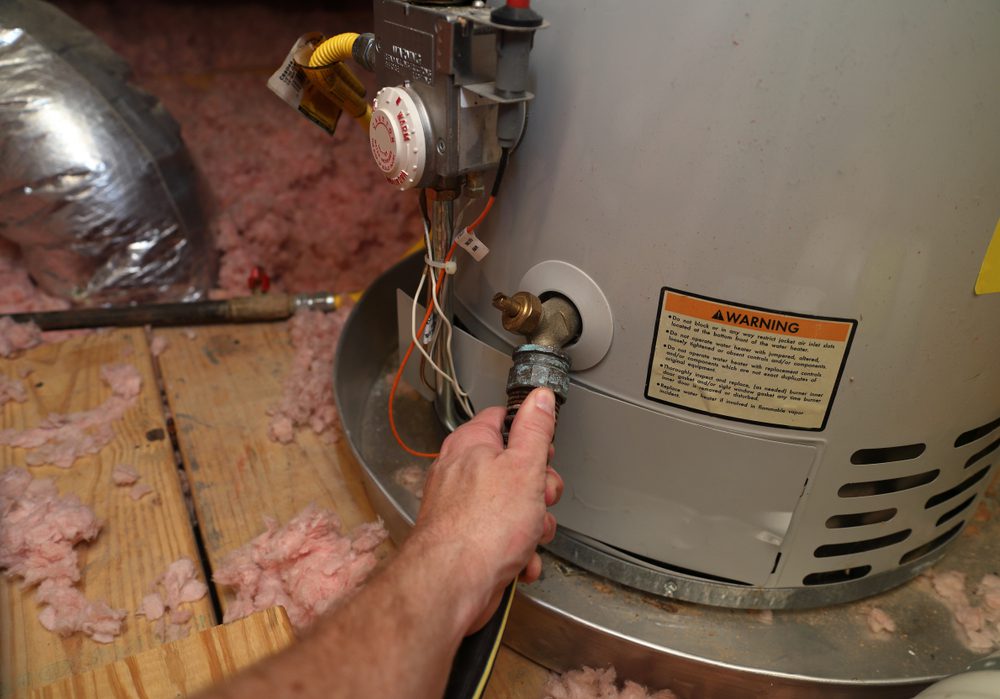Coping with the Routine Hot Water Heater Crisis Events
Coping with the Routine Hot Water Heater Crisis Events
Blog Article
Do you find yourself searching for information and facts concerning Is Your Water Heater Leaking??

A water heater is just one of the most important fundamental devices that can be discovered in a home. With water heaters, you do not require to go through the tension of heating water by hand whenever there is a requirement to wash, wash, or the recipes. Nonetheless, there is always an opportunity that your hot water heater would act up just like the majority of mechanical devices.
It is essential to keep in mind any type of little malfunction and tackle it promptly before things leave hand. The majority of times, your hot water heater begins to malfunction when there is a build-up of debris as a result of continuous usage. As a safety measure, periodic flushing of your water heater is advised to prevent sediment buildup and avoid useful failing.
Common hot water heater emergencies and how to handle them
Leaky hot water heater storage tank.
A leaky tank could be an indication of rust. It might cause damage to the flooring, wall and electrical gadgets around it. You could even go to threat of having your home swamped. In this situation, you must switch off your water heater, allow it to cool down, as well as thoroughly search for the resource of the issue. At times, all you require to do is to tighten up a few screws or pipe links in cases of minor leakages. However if this does not work as well as the leakage persists, you might need to employ the solutions of a technician for a suitable substitute.
Changing water temperature.
Your water heating system might start producing water of various temperatures typically ice chilly or scalding hot. There could be a need to change either the home heating or the thermostat unit of your water heater.
Insufficient hot water
Taking care of a not enough supply of warm water can be frustrating. It might be that the water heater can not sustain the warm water need for your house. To take care of this problem, you can try to change your heating unit's temperature dial and wait on a couple of mins. You can ask for the assistance of a professional plumber if the problem lingers. You could upgrade your water heating system to one with a bigger ability.
Blemished or odiferous water
When this takes place, you need to know if the issue is from the water or the container source. If there is no funny smell when you run cold water, then you are particular that it is your water heater that is malfunctioning. The smelly water can be caused by corrosion or the buildup of germs or sediments in the water heater tank.
Verdict
Some house owners overlook little caution and minor faults in their water heater system. This only results in further damages and also a possible complete failure of your home appliance. You need to manage your water heater mistakes as quickly as they come near prevent more costs and unnecessary emergency problems.
With water heaters, you do not need to go via the stress and anxiety of heating water by hand every time there is a requirement to take a bath, do the washing, or the dishes. Your water heater might start creating water of different temperature levels normally ice chilly or hot warm. It may be that the water heater can not support the hot water demand for your apartment or condo. If there is no amusing smell when you run cool water, then you are certain that it is your water heating system that is faulty. The odiferous water can be triggered by rust or the accumulation of bacteria or debris in the water heater storage tank.
Common Water Heater Issues and What You Should Do
What Type of Water Heater Do You Have?
Before we begin it’s first important that you identify the type of water heater you have on your property. There are two main types of water heaters out there: conventional and high efficiency.
Both of these types of products typically use either gas or electricity to heat power. There are also solar water heaters that use a thermal collector on the roof or yard to heat the water.
While these models are not as common, they can cut heating costs in half. In this article, we will focus on conventional and high efficiency.
How Do My Electric and Gas Water Heater Work?
Though they look similar, electric and gas water heaters work very differently. It’s important to know their basic function because often problems can be specific to the heating source.
In the electric model, a thermostat on the side of the machine detects the temperature of the water in the tank. When the temperature needs to rise electricity flows to a heating element suspended in the water.
Gas models also use a thermostat device — typically with a mercury sensor at the tip and an additional sensor called a thermocouple. The thermocouple detects whether the pilot light is on and controls the flow of gas.
When the thermostat drops below the appropriate level gas is released which becomes ignited by the pilot light. The flame heats the bottom of the water tank which causes hot water to rise and cold water to drop.
This natural circulation continues until the water reaches the desired temperature. Then, the thermostat triggers the gas control valve to shut off the flow of gas.
What Are the Most Common Issues and How Do You Fix Them?
https://happyhiller.com/blog/common-water-heater-issues-and-what-you-should-do/

I'm very fascinated by Common Hot Water Heater Problems and I'm hoping you enjoyed reading the page. Those who appreciated our page kindly make sure you remember to share it. Many thanks for your time spent reading it.
Further Details Report this page